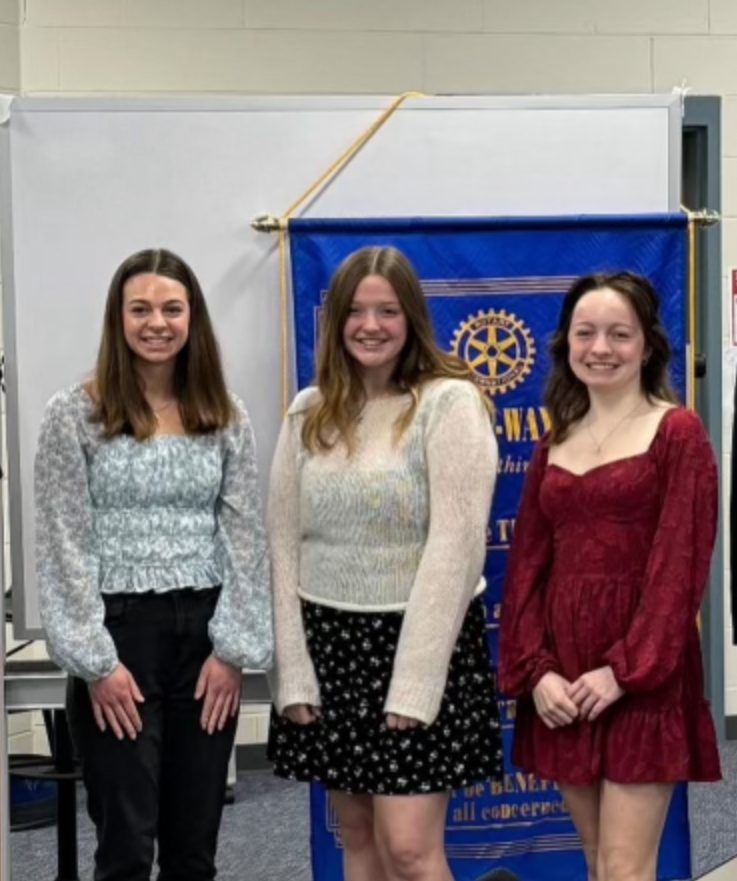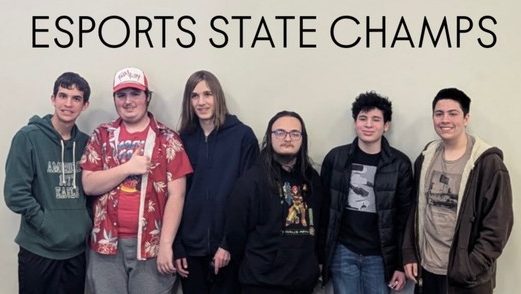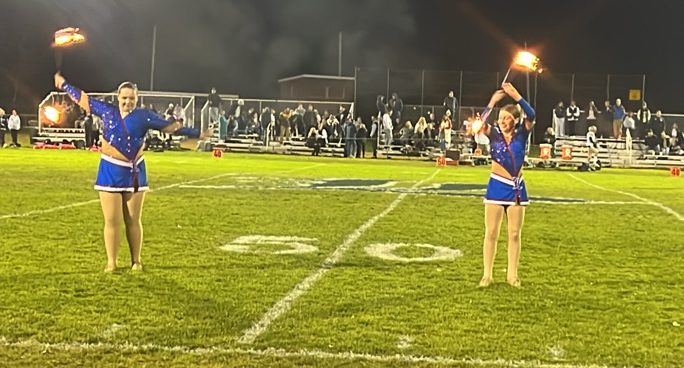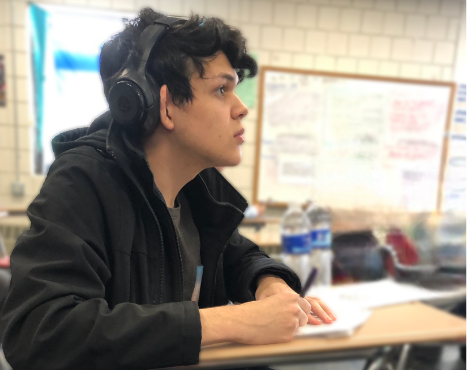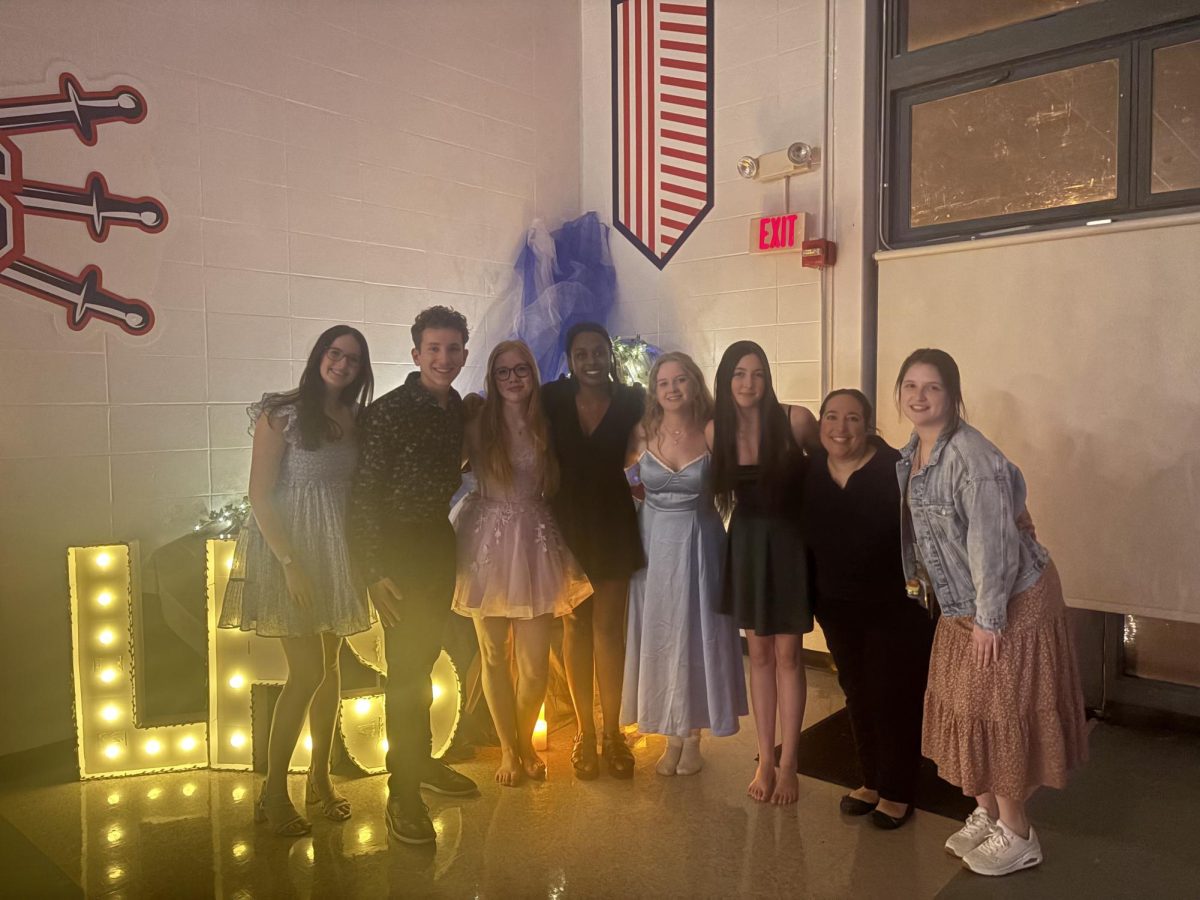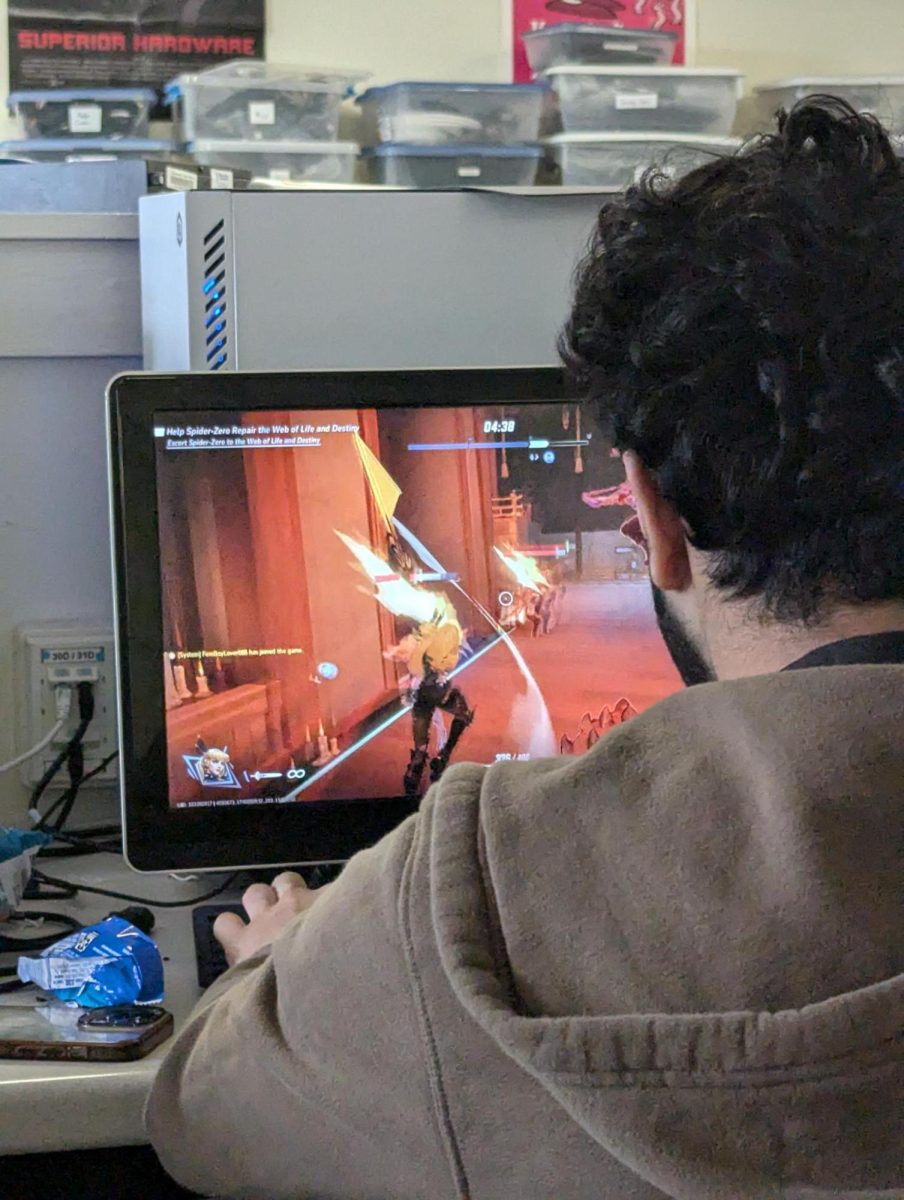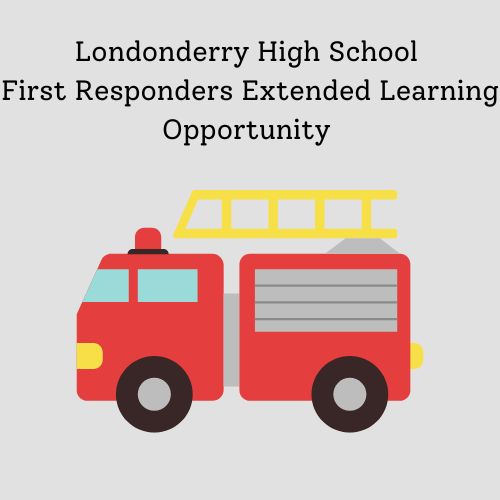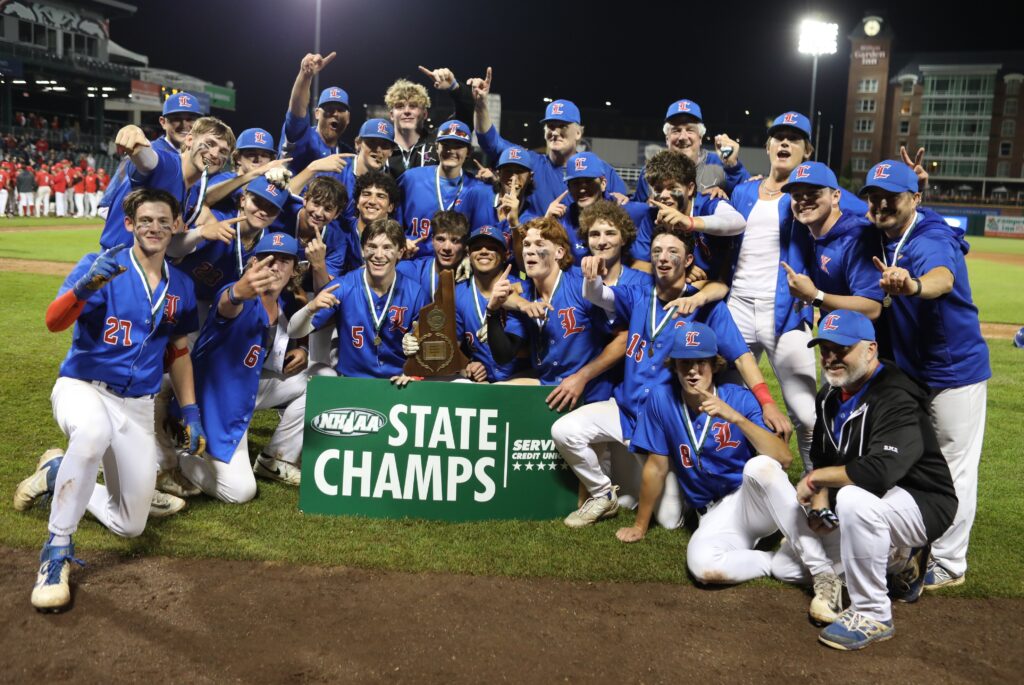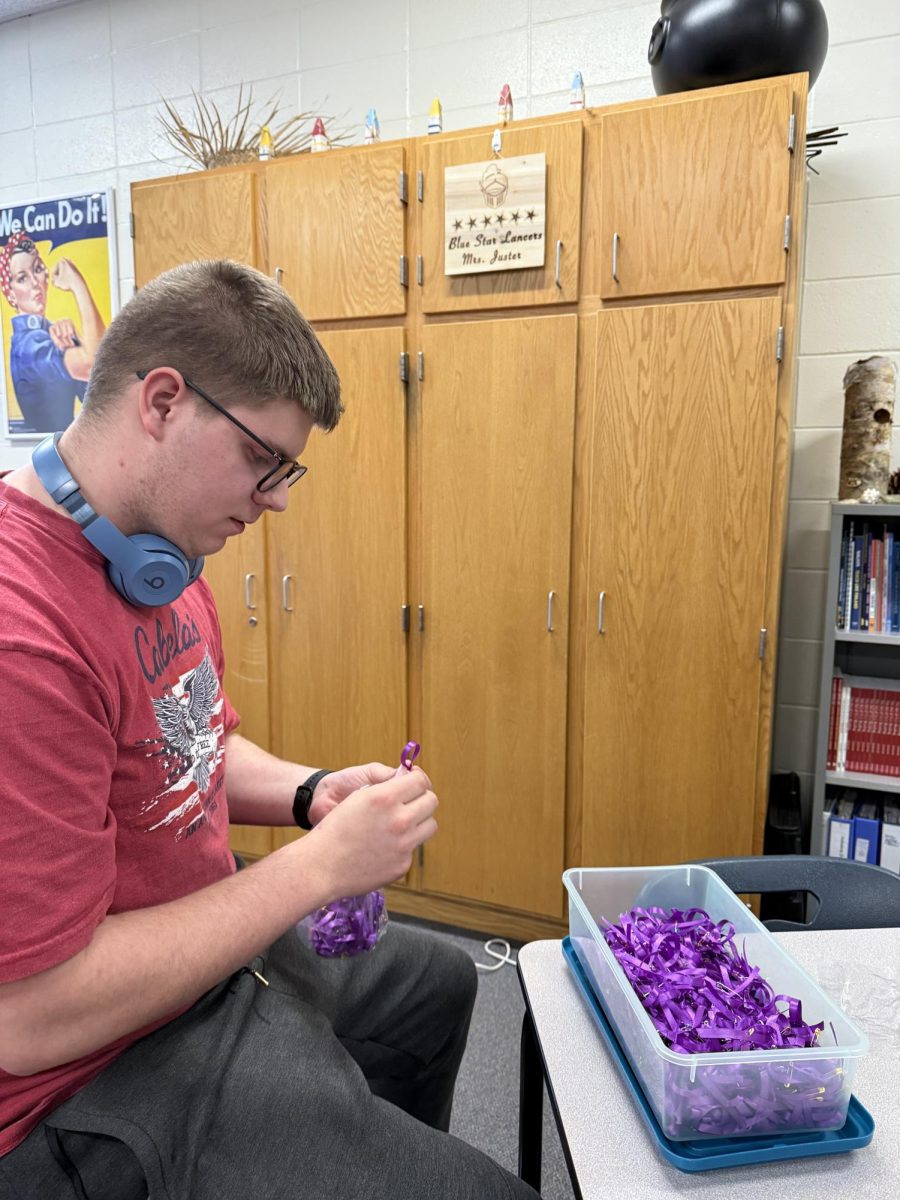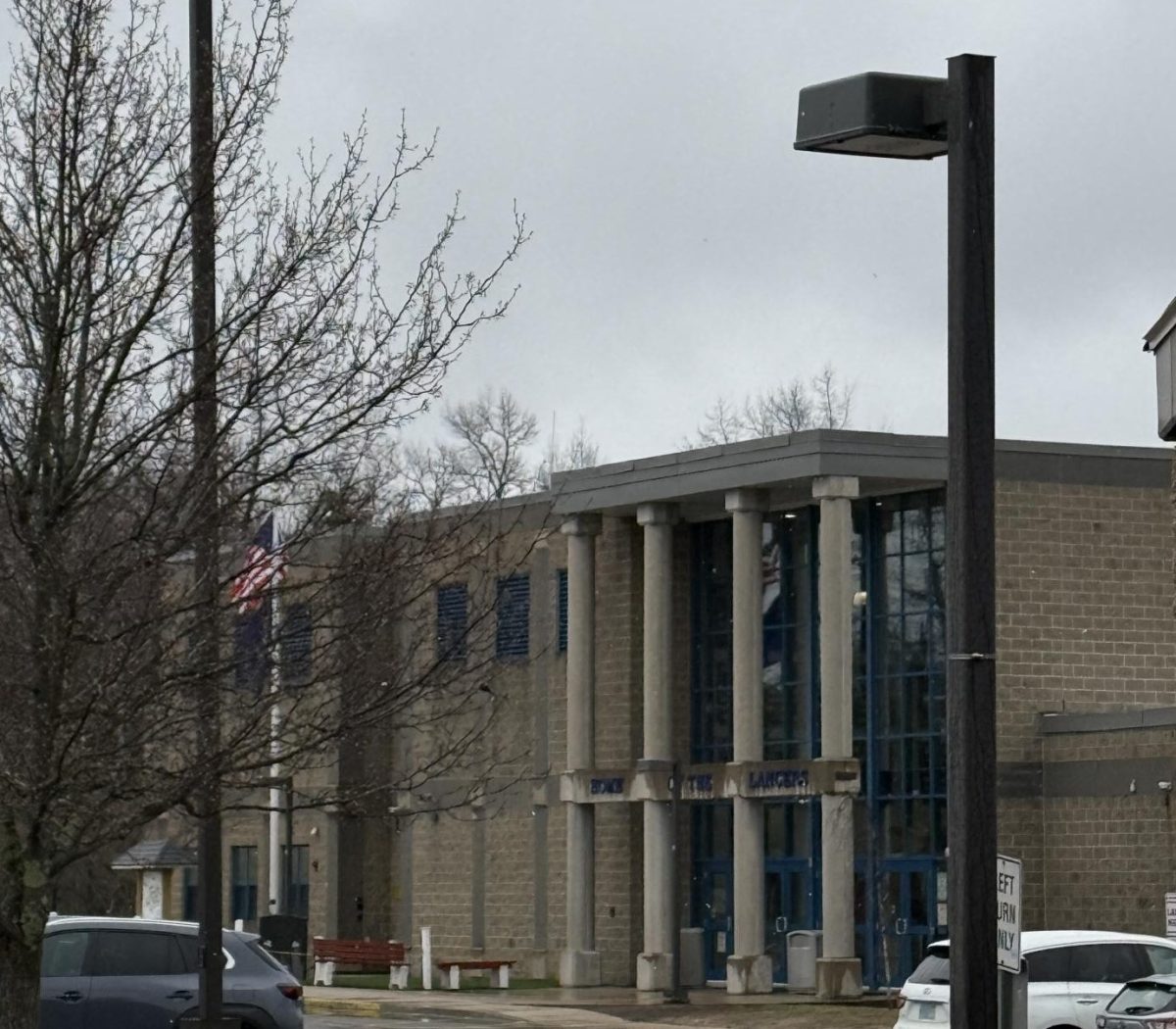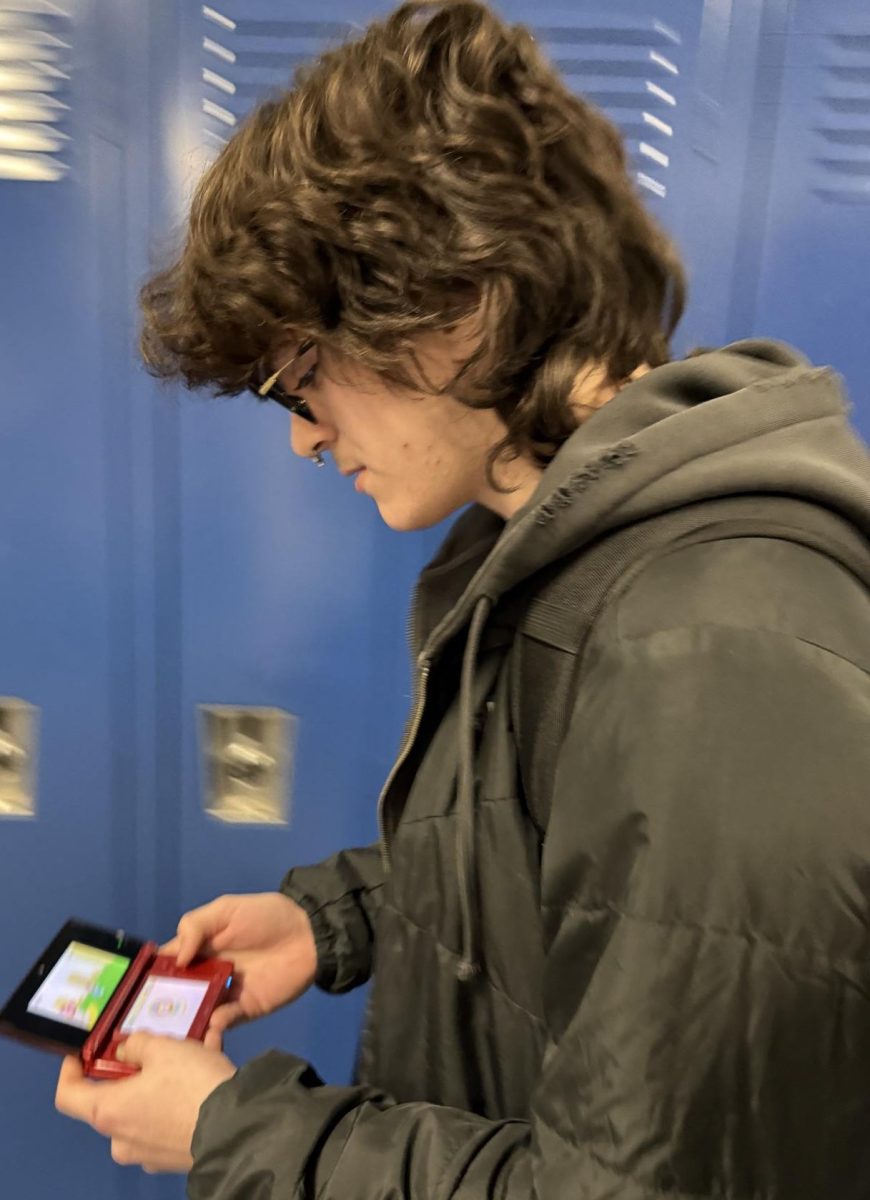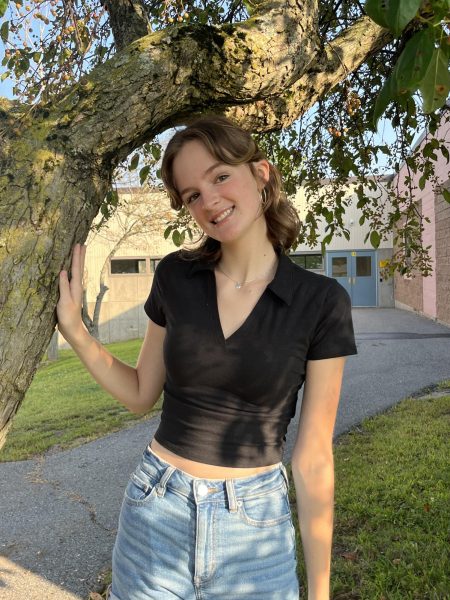With colleges across the country releasing their decisions left and right, seniors everywhere are on the hunt for scholarship opportunities and award contests. On senior Ellie Holcombe’s hunt, she came across the annual Rotary Speech Contest through her public speaking teacher, Emily Standbridge, who encourages all of her students every year to compete in the contest.
“It’s a great opportunity to win some money,” Standbridge said. “With the public speaking class, you’re already practicing the skill, so why not?”
Holcombe, with “very minimal” public speaking experience, decided to participate for the chance to win a scholarship. As she began preparing the required five to seven minute speech, she realized how “important” it is to inform people about her selected topic: addiction.
“This was something I was pretty nervous for,” Holcombe said, “but I wanted to share my experience to maybe help someone out there who’s struggling or has family members who’ve struggled with it.”
Holcombe’s speech told the story of a family member of hers who struggled with addiction and how the experience shaped her into the person she is today. Her goal was to share her story and help people who may be struggling with the same issue. Little did she know, her speech would win her first place and a chance to compete in the Rotary Speech Finals.
“I was super shocked, but proud of myself,” Holcombe said. “I had a good feeling about it, but I really didn’t think I’d win first place because everyone else did so incredibly.”
The contest consisted of Londonderry and Pinkerton students competing against each other for placements and scholarship prizes. Londonderry “swept” the competition according to Standbridge, as Londonderry students came in third and second, while Holcombe came out on top.
“The rotary speeches judges always judge differently than I grade so I never know which way it’s going to go,” Standbridge said. “I was super proud of her.”
To create her speech, Holcombe took inspiration from her college essay and added to it. Then, she printed it out and read it over “in [her] room multiple times.”
“I would stand up and pretend that I was at the podium and I’d just read off and practice like an audience was actually there,” Holcombe said. “I looked like a maniac talking in my room with a bunch of ghosts or something.”
Before finalizing her speech, she confided in Standbridge to get feedback from a public speaking teacher.
“[Standbridge] gave me some constructive criticism on it and also lots of encouragement, which was good,” Holcombe said.
Once she got to the competition, Holcombe was “so nervous,” since she was scheduled to present second to last.
“I just watched everyone go and saw how amazing everyone did,” Holcombe said. “I [tried to go] up there with an open mindset.”
When it was Holcombe’s turn to present, she was “super shaky” at first, but found comfortability as her speech went on.
“Throughout the speech, I calmed myself down,” Holcombe said. “I thought ‘this is the one chance I get. Pull it together.’”
Holcombe felt “confident” in her speech, but placing first was not in her horizon line. When the results of the competition were being revealed, she heard name after name called and expected not to place.
“I heard third, and second, and then only first place was left and I kind of thought ‘oh, maybe I didn’t place,’” Holcombe said. “The guy said my name, I was like ‘oh, what?’”
Though her speech topic was “personal,” Holcombe felt confident in her writing and believed her story could be used as “a prime example that things do get better.”
“It’s not gonna be this way forever,” Holcombe said. “You go through things, you face adversity to overcome it in the end and learn from your life experiences. I think it’s a really important message to spread and if you have a voice you should talk about that stuff.”
Going into the finals, Holcombe is “excited” about the opportunity to not only win money to put towards college, but to inform more people about addiction and “sharing her story.”
“I think spreading my story is truly the most important thing even if I don’t place in the finals,” Holcombe said. “I think it’s worth it to try to touch as many people as I can.”
After high school, Holcombe plans to major in psychology. Through this practice, she hopes to work with people who face substance abuse and work up to becoming a therapist for children and adolescents.
“I’d love to work with kids who have faced struggles in their lives similar to ones I faced because I can really relate to that,” Holcombe said. “I feel that even if I change just one person’s life, then I’ll know that I’ve succeeded.”
Her success in the Rotary Speech Contest solidified Holcombe’s hopes to one day help children who struggled with the same issues as her. Her speech was her first step to educating people about the topic of addiction and helping others.
“I don’t think there’s an age limit where you can start what you want to do,” Holcombe said. “If you know what you want to do, you can take advantage of as many opportunities as you can to start that path and impact people’s lives.”



